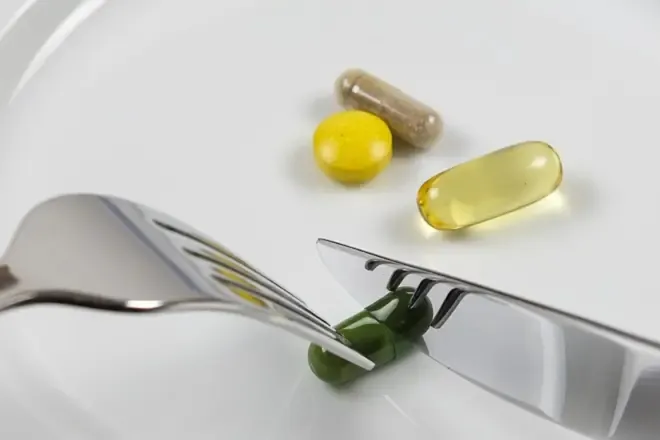If you’re looking to take your workouts to the next level, supplements can be a game-changer. They’re not magic pills, but when paired with a solid exercise plan and a balanced diet, the right ones can help you build muscle, increase endurance, and recover faster. In this blog post, we’ll dive into the top five supplements that are backed by science to improve your workout routine. We’ll cover what they do, how to use them, and why they work, all in simple terms to help you make informed choices. Always check with a healthcare professional before adding supplements, especially if you have health conditions or are pregnant.

Why Supplements Can Help Your Workouts
Supplements aren’t a replacement for hard work or good nutrition, but they can fill gaps and give you an edge. Whether you’re lifting weights, running, or doing high-intensity interval training (HIIT), the right supplements can support your body’s needs. They can boost energy, improve strength, reduce fatigue, and speed up recovery. The five we’ve chosen—creatine, protein powder, beta-alanine, caffeine, and L-citrulline—are some of the most researched and effective options out there. Let’s break them down one by one.
1. Creatine: Power Up Your Strength
What Is Creatine?
Creatine is a natural compound found in your muscles and foods like meat and fish. It helps your body produce energy for short, intense bursts of exercise, like lifting weights or sprinting.
How It Helps Your Workouts
Creatine increases the energy available to your muscles, letting you push harder and lift heavier. Over time, this can lead to more strength, bigger muscles, and better performance. Research shows it can also reduce muscle breakdown, which means less soreness and faster recovery.
How to Take It
- Loading Phase: Take 20 grams per day (split into four 5-gram doses) for 5-7 days to quickly boost muscle stores.
- Maintenance Phase: After loading, take 3-5 grams daily. You can skip the loading phase and start with 3-5 grams daily, but it’ll take a few weeks to see results.
- Mix it with water or a post-workout shake for easy absorption.
Safety and Tips
Creatine is one of the safest and most studied supplements. You might gain a little weight from water retention in your muscles, but this is normal and not harmful. Some people feel bloated or get mild stomach cramps, so stay hydrated and split doses if needed. Always choose a high-quality creatine monohydrate from a trusted brand.
Why It’s Great
Studies, including a 2017 review, show creatine can increase lean muscle mass, especially for beginners or those doing resistance training. It’s a go-to for anyone wanting to build strength and power.
2. Protein Powder: Build and Recover Stronger
What Is Protein Powder?
Protein powder is a convenient way to get high-quality protein, which your muscles need to repair and grow after workouts. It comes in forms like whey, casein, or plant-based options (pea, soy, or hemp).
How It Helps Your Workouts
Exercise breaks down muscle fibers, and protein helps rebuild them stronger. Getting enough protein ensures your body has the building blocks to recover and grow. It’s especially helpful if you struggle to eat enough protein through food alone, like chicken, eggs, or beans.
How to Take It
- Daily Amount: Aim for 0.8-1.1 grams of protein per pound of body weight daily. For example, a 150-pound person needs about 120-165 grams.
- Post-Workout: Take at least 20 grams of protein powder within 0-2 hours after exercise to kickstart recovery.
- Blend it into a smoothie, mix with water, or add to oatmeal for a quick boost.
Safety and Tips
Protein powder is safe for most people, even at high doses (up to 2 grams per kg of body weight daily). If you have kidney issues, talk to your doctor first. Choose a powder with minimal additives and check for third-party certifications like NSF to ensure quality. Whey is great for fast absorption, but plant-based powders work well for vegans or those with dairy sensitivities.
Why It’s Great
Protein is a cornerstone of muscle growth. Research shows that adding protein supplements can slightly increase muscle gains, especially if your diet lacks protein. It’s a must-have for anyone serious about recovery.
3. Beta-Alanine: Push Past Fatigue
What Is Beta-Alanine?
Beta-alanine is an amino acid that helps your muscles produce carnosine, a compound that fights acid buildup during intense exercise. This reduces the “burn” you feel during tough workouts.
How It Helps Your Workouts
By buffering acid, beta-alanine lets you exercise longer before feeling tired. It’s perfect for high-intensity activities like sprinting, HIIT, or circuit training that last 30 seconds to 10 minutes. It may also help with lean muscle gains over time.
How to Take It
- Take 3-6 grams daily, ideally split into smaller doses (1-2 grams) to avoid tingling (a harmless side effect called paresthesia).
- You can take it any time of day, with or without food, but some prefer it pre-workout for a boost.
- It takes 2-4 weeks of consistent use to build up carnosine levels.
Safety and Tips
Beta-alanine is safe at 1.6-6.4 grams daily for up to 8 weeks. The tingling sensation is common but fades with smaller doses or over time. Look for sustained-release formulas if it bothers you. As with all supplements, stick to reputable brands.
Why It’s Great
Studies show beta-alanine improves endurance and exercise capacity, especially for trained athletes. While it may not drastically change your body composition, it’s a solid choice for pushing through tough workouts.
4. Caffeine: Energize Your Performance
What Is Caffeine?
Caffeine is a natural stimulant found in coffee, tea, and many pre-workout supplements. It wakes up your nervous system and gets you ready to move.
How It Helps Your Workouts
Caffeine makes exercise feel easier by reducing how hard it seems and boosting focus. It’s great for endurance activities like running or cycling and can also help with short, intense efforts. It works by blocking adenosine, a chemical that makes you feel tired.
How to Take It
- Take 200-400 mg daily, with 200 mg about 15-60 minutes before your workout for the best effect. For reference, an 8-ounce cup of coffee has about 80-100 mg.
- You can get it from coffee, tea, energy drinks, or pre-workout powders, but check labels to avoid overdoing it.
Safety and Tips
Caffeine is safe for most at 400-500 mg daily, but too much can cause jitters, anxiety, or a racing heart. Avoid it late in the day if it affects your sleep, and don’t mix it with medications without checking with a doctor. If you’re new to caffeine, start with a lower dose (like 100 mg) and see how you feel.
Why It’s Great
Research shows caffeine can boost endurance by 20-30% and improve focus, making it a favorite for athletes and casual gym-goers alike. It’s easy to find and works fast.
5. L-Citrulline: Boost Blood Flow and Recovery
What Is L-Citrulline?
L-Citrulline is an amino acid found in foods like watermelon. It helps your body produce nitric oxide, which widens blood vessels and improves blood flow to muscles.
How It Helps Your Workouts
Better blood flow means more oxygen and nutrients reach your muscles during exercise, which can improve endurance and reduce soreness. It’s especially helpful for HIIT or weightlifting, where muscles need quick recovery.
How to Take It
- Take up to 10 grams daily, usually 30-60 minutes before a workout.
- It’s often found as L-citrulline or citrulline malate in pre-workout supplements. Mix it with water or add to a smoothie.
Safety and Tips
L-Citrulline is generally safe, with no major side effects reported at recommended doses. It’s naturally found in foods, so it’s well-tolerated. Choose a pure supplement from a trusted brand to avoid fillers.
Why It’s Great
While not as heavily studied as creatine or protein, L-citrulline shows promise for improving endurance and recovery. It’s a great addition if you’re looking to reduce muscle soreness and keep going longer.
How to Choose the Right Supplements for You
Not everyone needs every supplement. Here’s how to decide what’s best for you:
- Your Goals: If you’re focused on strength, prioritize creatine and protein. For endurance, beta-alanine and L-citrulline are great. Need energy? Caffeine’s your go-to.
- Your Diet: If you already eat enough protein (like 1 gram per pound of body weight), you might not need a powder. Same goes for caffeine if you drink coffee regularly.
- Your Budget: Supplements can add up. Start with one or two (like creatine and protein) and add others as needed.
- Your Health: Always talk to a doctor, especially if you have conditions like high blood pressure or kidney issues, or if you’re pregnant.
Tips for Using Supplements Safely
- Buy Quality: Look for brands with third-party testing (like NSF or Informed-Sport) to ensure purity and safety.
- Follow Doses: Stick to recommended amounts to avoid side effects. More isn’t always better.
- Combine with Diet and Exercise: Supplements work best with a solid workout plan and a diet rich in whole foods like fruits, vegetables, lean proteins, and healthy fats.
- Stay Hydrated: This is especially important for creatine and beta-alanine to minimize side effects.
Adding the right supplements to your workout routine can make a big difference, whether you’re aiming to lift heavier, run longer, or recover faster. Creatine, protein powder, beta-alanine, caffeine, and L-citrulline are backed by science and trusted by athletes for their ability to boost performance. Start with one or two that match your goals, use them consistently, and pair them with hard work and good nutrition. Always check with a healthcare professional to make sure they’re right for you.
Ready to level up your workouts? Try these supplements and see how they work for you. What’s your favorite supplement or workout tip? Share in the comments below!






